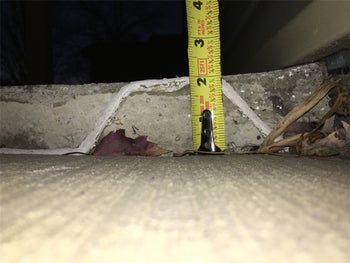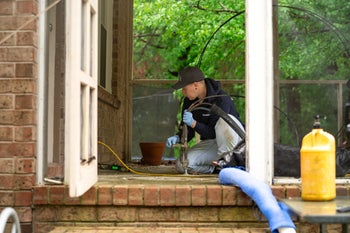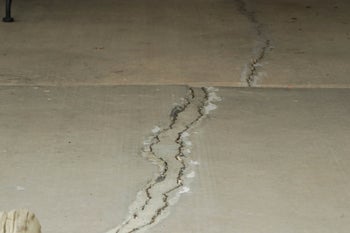Driveway Lifting: What Homeowners Need To Know
Table of Contents
1. Why Do Concrete Driveways Become Unlevel?
2. How Driveway Leveling Works
3. How Long Will Driveway Leveling Last?
4. Can All Uneven Driveways Be Leveled Using Concrete Lifting Foam?
5. Driveway Leveling Cost
6. What About Do It Yourself Driveway Leveling?
7. How To Prevent Concrete Slabs From Becoming Unlevel
If you’re tired of parking your car on unsightly, uneven concrete, driveway leveling is a fast, inexpensive way to lift and level the slab. There’s no need to go through the expensive and time-consuming process of ripping up the old slab and pouring new concrete. While freshly poured concrete needs days to dry and cure (i.e., harden), driveway leveling with Polyurethane Foam Injections can usually be completed in just a few hours, and then the driveway is ready for use again.
Why Do Concrete Driveways Become Unlevel?
Concrete driveways become unlevel for various reasons, including:
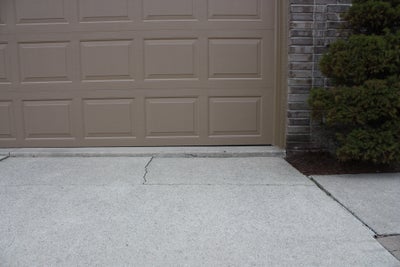
- Soil that wasn’t adequately compacted before the driveway was poured.
- Decaying organic matter under the driveway.
- Poor drainage under the driveway has led to voids. If there’s a problem with excess groundwater, this could make the situation even worse.
- Expansive soil under the driveway. Expansive clay soil swells considerably when it soaks up water and shrinks when it dries out. Over time this can cause an unlevel driveway.
How Driveway Leveling Works
The minimally-invasive driveway leveling procedure involves drilling small, dime-sized holes into the slab and then using those holes to inject polyurethane foam under the driveway. The foam immediately expands, fills the voids, consolidates the soil, and raises the slab.
The holes are filled and matched to the color of the concrete, so the repair is virtually invisible. The entire repair usually takes no more than a few hours, and then the driveway is ready for use again. Driveway leveling using polyurethane foam injection is not only faster than digging up and replacing the driveway but less expensive as well.
Watch the video to see a glimpse into how it works!
Note: In the past, driveway leveling was done by injecting a cement slurry (usually a mix of soil, sand, and cement) under the slab. Some contractors still use this method, commonly known as “mudjacking.” However, today, most driveway leveling is done using poly foam injection.
For more detailed information about the driveway leveling procedure, see How to Repair a Sinking Garage Slab.
How Long Will Driveway Leveling Last?
If poly foam is used, driveway leveling will last a long time. This is because polyurethane foam is so lightweight that it adds virtually no weight to the soil. (Mudjacking, the older technique mentioned above, uses a heavy cement slurry.) However, if there’s movement in the soil, that can affect the repair. This is why proper drainage under the driveway is so important. Any existing drainage issues should be fixed along with the driveway.
Can All Uneven Driveways Be Leveled Using Concrete Lifting Foam?
No, driveway leveling via concrete lifting foam isn’t the right approach for a driveway with many cracks all over the surface causing it crumble. Driveways suffering from severe cracks will likely need to be removed and replaced. Concrete replacement takes longer because the repair crew has to make several trips to and from the property. It also costs more overall.
The only way to know for sure if your uneven driveway can be leveled using poly foam is to call a foundation repair contractor who does driveway leveling and ask for an inspection and estimate.
How Much Does Driveway Leveling Cost?
The cost of driveway leveling depends on various factors, including the size of the driveway, how much of it needs lifting (i.e., how much poly foam will be necessary), and where you live. Driveway leveling is almost always significantly less expensive than tearing up and replacing the driveway. This is because digging up and pouring a new driveway isn’t a job that can be completed in just a few hours.
Can You Fix an Uneven Driveway Yourself?
Even though you might think DIY driveway leveling could be cheaper, we don’t recommend leveling on your own. Proper driveway leveling requires special equipment, training, and experience. If done improperly, the driveway could crack, lift more than you wanted, or become more uneven than it was before. Therefore, it’s best to leave driveway leveling to the pros.
How To Prevent Concrete Slabs From Becoming Unlevel
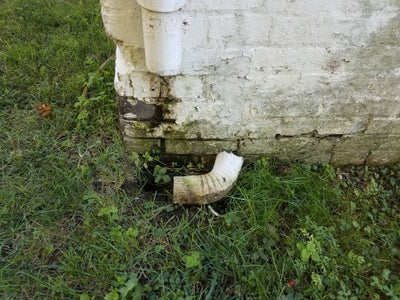
There isn’t much you can do if the fill dirt under the driveway wasn’t adequately compacted before the contractor poured the concrete. However, driveways often become unlevel due to drainage issues, and there are ways to prevent this from happening, including:
- Making sure downspouts are carrying water away from the area around your driveway. They may need to be redirected.
- Cleaning your gutters regularly. Clogged gutters can cause water to spill over the side of the house or garage and into the soil next to the foundation or driveway. That’s precisely where you don’t want excess water.
- Regrading the yard so that water doesn’t flow toward your driveway.
For more information on the importance of good drainage for driveways and foundations, see Foundation Settlement. If you need driveway leveling in Norther California, contact us today for a free inspection and repair estimate.
More Resources
Publish Date:
Last Modified Date:

Our Locations
2333 Courage Dr. Suite C
Fairfield, CA 94533
1161 N Fair Oaks Ave
Sunnyvale, CA 94089

